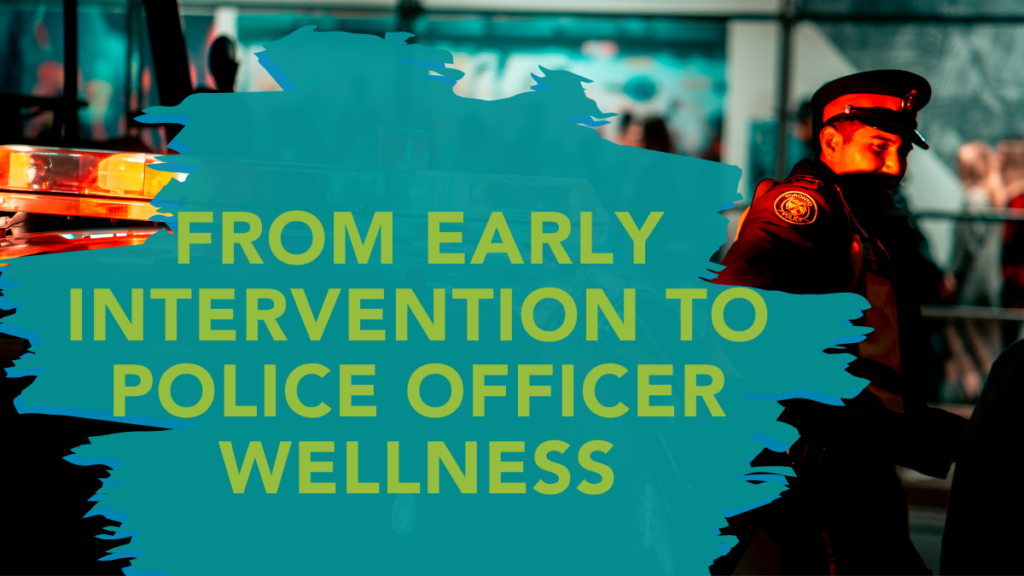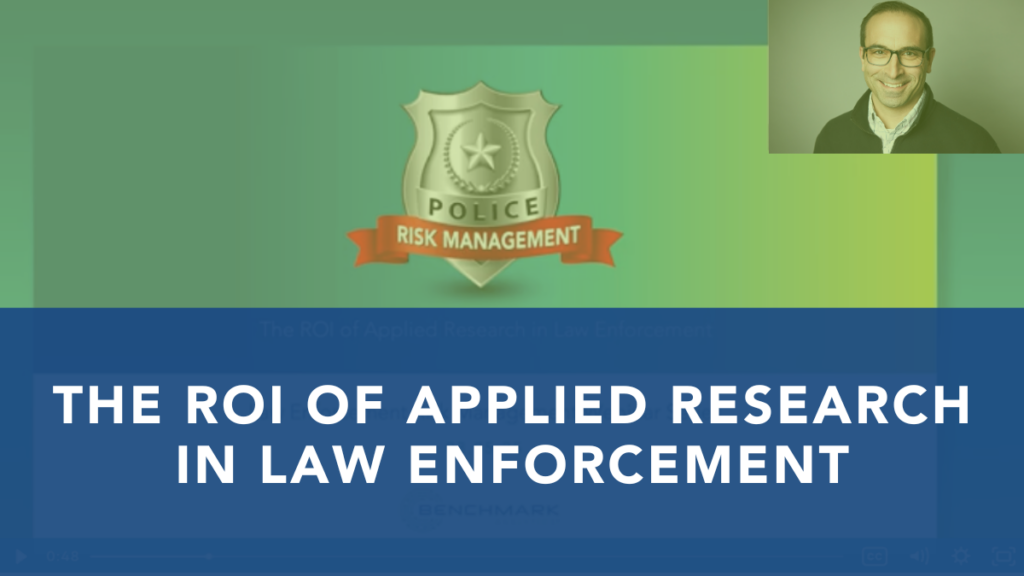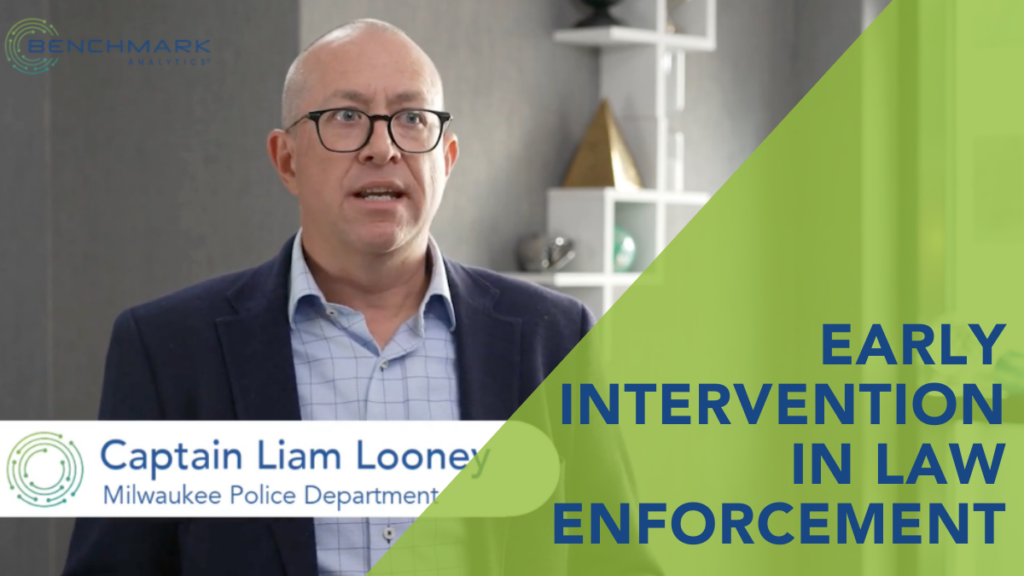Investing in a Police Force that’s Poised for Leadership
Posted
November 24, 2020
Share:
The following is part 2 of 2 in our IACP Leadership Series conversation between Benchmark CEO Ron Huberman and the legendary Chuck Ramsey, former Chief of Police, Washington, DC; former Police Commissioner of Philadelphia; and Co-Chair of the Task Force on 21st Century Policing. In this entry, Mr. Ramsey underscores the importance of knowing one’s community as well as the importance of creating a culture that reflects what is expected and will not be tolerated.
RH: Chuck, let’s say you wake up tomorrow, and you look around and you have a uniform on and you’re a chief again in a major city in America. I think certainly from my dialogue with chiefs across the country – and you talk to chiefs every day – it’s probably never been harder to be a police chief — but here you are. You got a large police force. You have all the challenges that every city has, whether it’s Chicago or Baltimore or Philly or DC or you name it. What do you do? How do you start to lead in the current environment? It might be the same playbook, but what is on your list of ‘I have got to get these things right from the start’?
CR: First of all, let me just say that I think the tougher job than being a police chief in today’s environment is being a police officer in today’s environment. At least as a police chief, you have some way of influencing the current and the future. Whereas as a police officer, you’re at the whim of whatever it is that’s going on. I just want to just say that because it’s tough, very tough for the men and women that are out there trying to do the job the best they can. I think it starts with communication, both internal and external. I think it starts there.
I think it’s important to have those lines of communication with people, even those people whose opinion and whose views may be totally – in fact, it’s even more important – totally opposite from what you believe and what you feel. You have to at least try to establish lines of communication. Take a serious look at where you are and what it is that you’re doing as an agency, and you might need to have someone from the outside come in and take a critical look because when you’re a part of it, you’re so close to it, you don’t always see it. What are we doing? How are we managing our personnel? Do we really know what’s going on out there? Are we really stepping in?
Let’s take early intervention for an example. If an officer has a history of engaging in certain kind of misconduct…and it may not be use of force. Could be verbal. Could be anything, but it’s not consistent with policy. Do we know who they are? I’ve often said the good news is you can identify them; the bad news is you’ve identified them now you’ve got to do something with it. The key is, now that we know, what do we have in place to change the behavior of the individual? Because police agencies are primarily punishment-driven and giving a person three days off doesn’t necessarily change behavior. What is it that we’re going to do if that’s really the goal?
Early intervention, having an information system or personnel management system that will identify individuals at your earliest possible point…put in place those mechanisms to be able to intervene early on and say, ‘Hey, we just don’t do that’. Do it in a way in which it goes beyond just that one officer but the other officers too — because to me, real change in a police department isn’t going to come from whoever’s sitting on top or a software. It’s going to be when the culture of the organization itself will not tolerate certain behaviors that are out of the norm because that’s not what the agency stands for. It’s not what the culture stands for, but you have to use these tools to get you there. That’s the ultimate goal. That’s the kind of thing I’d be focused on right now.
Learn from those that have experience. Learn from Minneapolis. Learn from these other cities. Even back in the days when we were more concerned with terrorist attacks…if it occurred somewhere else, I would ask my people, ‘Okay, if that happened here, how would we handle it? What are our resources? What are our capabilities? What can we do? Do we actually know what we can do, and more importantly, what we’re incapable of doing’? You have to do that sort of thing. If that officer was a problem, how come they didn’t identify him? If he was a member of our department, would we have identified him? If we had identified him, what we would have done with him?
RH: The one thing that just struck me so much when I came back to Benchmark after running the Chicago Public School System…I spent an inordinate amount of time asking the question, “How do we make our teachers more effective?” We had some phenomenal talent, unbelievably great teachers. We had some teachers who struggled. Ultimately, the idea was never let’s be punitive…let’s go be disciplinary with the teachers who are struggling. The collective question of the organization was, ‘How do we invest in these teachers to become effective’? In the world of policing in the year 2020, in the history of humankind, if you were to say show me an evidence base of interventions that help police be better…that enabled them to do what is an incredibly hard job more effectively — it doesn’t exist. I’m excited to say, we’re trying in partnership with our academic partners and others to develop it, but we’ve got a long way to go in the profession in supporting the frontline in that way. These are super important things you’ve always talked about.
Regarding culture — something that I’ve heard you talk about over and over again with tremendous passion is the role of that frontline supervision…your street sergeants and others. Can you talk about what you did and what you would do as a chief to get that supervision? The command staff is easier. You’re not talking about 500 people. You’re talking about folks you can directly talk to. But when you start getting down to lieutenants and sergeants who are ultimately in charge for all practical purposes more than almost anyone else, how do you win over those ranks in terms of your vision, your values, where you want the culture to go?
CR: There are a couple things. You point out a critical rank in the department. That’s that first line supervisor. That’s that sergeant. Because I remember, when I was a young police officer, I cared more about who my sergeant was than I cared about who the district commander was because I had to deal with the sergeant every day. District commander was pretty much a picture on the wall. If I was unlucky, I’d be walking down the hall at the same time he was, and you turn your head so he didn’t pay any attention to you. We’ve got to invest in our people in terms of their training and education, and there’s just not enough of it.
Some departments have pre-service training, let’s say, for sergeants. They put them through all the things — your roles, your responsibilities, and so forth. Some go so far as to even have an FTO system for new sergeants where they match them up with veteran sergeants for a period of time to learn what’s going on. I think all those things are important, but there’s a basic flaw in the system of policing in our promotional system.
The only way you can make more money in the average police agency is through the promotional process, which means that you’ve got people who are smart enough to pass a multiple-choice exam, but they have no interest in leading others. They have no interest in supervising, but they need more money. How do you carve out those folks and have people that truly are committed to leadership, truly are committed to that? You mentioned that at the top it’s easier – maybe in some ways but in other ways not so much – because we don’t do anything in policing to develop the next generation of leaders, or at least not enough. We have 18,000 police departments. Do you honestly think you’ve got 18,000 good police chiefs and sheriffs? I know we don’t. Until we really address the issue of really grooming people and preparing them, not only for the current role that they’re going to be in but get them ready for the next step.
When I went to DC, and I’ve seen it in other agencies, they didn’t even have a good job description for any rank above police officer, entry-level. We had to create one for sergeant, create one for lieutenant, create one for captain. In the Washington DC police department, they did not have it. What was the knowledge, skills, and ability needed for this rank, assuming that you have all that when you make the new rank, but what’s different? What is it that you need? How do we prepare you in advance? Not wait until you get there and then find out you can’t handle it. Now we got to try to bury you somewhere. What do we do in order to try to prepare you? It’s complicated. It’s complex, but it’s fixable. It’s going to really take an effort to really get serious about leadership development in police agencies, and don’t wait until somebody makes sergeant. From the time a person comes in and you know this person has their eye on not staying at that level forever, what are we doing to enhance their abilities?
RH: One of the things I think we make very hard on ourselves is we let the lawyers have too much of a voice because ultimately, what has happened is promotional exams in too many places have been reduced to what you said, which is a multiple-choice exam. A multiple-choice exam doesn’t identify ethics. It doesn’t identify leadership. You can usually answer policy right. You might be able to answer situational awareness questions right, but test taking and leadership are two completely different pieces. If you don’t make sergeant, you’re not going to make chief.
One of the research projects that we have going on at Benchmark with our partners is this — because we have people’s performance data, how do they actually do as the police. Can they navigate with good de-escalation skills? Can they navigate where they have good activity? Do they navigate in a way where there is powerful community engagement and the like? Can we use that data where the baseline for promotion becomes your performance on the job where there’s never a promotional exam? Because we have everything we need to know who’s the leader today, and let’s use that information as a way to understand promotion versus a one-time high stakes exam that ultimately may or may not pay off for folks.
CR: The other thing, if I could just add one thing. Most systems are geared toward identifying people who aren’t doing things right as opposed to identifying people who are doing things right and then going back and digging a little deeper to find out what are those characteristics…what are those traits…what are those things about people who are able to successfully de-escalate situations? People who really show good leadership — what is it about them that distinguishes them from the person who’s one of our frequent fliers, who’s always into something that they got no business being in?
You could say some of this is recruitment and hiring and all that, but it’s more than that once you’re on the job, I think. I think if we focus more on that and at least make that a big part of the picture…because when you really stop and think about it, what would a good 21st-century police officer look like? What are those skills and abilities? What are those talents that they need to bring to the table? We need to be building that image, and I think if we did that and if we had a system that could actually help us do that, that would be absolutely remarkable.
RH: Here’s what I would tell you, Chuck. This is my thesis on it. I can tell you as a research organization – and for those who don’t know, we were born out of research done at the University of Chicago – is I would argue we know that today, meaning we have ways that we can assess what is the community’s perception, community engagement for someone. We know their activity level. We know how they use force. We know whether they get citizen complaints. We know if they’re effective depending on the job they’re in, if they’re effective preliminary investigators. We see it because we can baseline.
We know, here’s what the average officer does. Here’s what someone does, and if they do it in a way where folks don’t get hurt and they’re able to still be an effective police officer, there is a pathway to say we can find the best and brightest among us and find a way that we put them on a trajectory to great leadership. Because ultimately, I’m agreeing with you, Chuck, every time you said it. Today is Chuck Ramsey’s greatest hits that I’ve heard over many, many years of being someone who has followed you, is we can change the equation. Because, as you’ve said, those frontline supervisors, if we pick the right ones, every officer in their command is ultimately going to get to the right place because ultimately, it’s their watch. Everyone else is a picture on the wall.
CR: That opens the door for better education of police chiefs to know what that 21st-century cop should look like. What are the skills and abilities? Because that drives your recruiting…because if you know that, then that’s who you go after. If you look at many police departments, we say we want people who are community-oriented. We want people who have good de-escalation skills. We want diversity. We list all this stuff. Play the recruitment video of that same department. What are they showing? SWAT knocking down the door…helicopters…boats going down the river or lake. It’s all the Type A personality stuff. Who do you think you’re going to get to apply?
It’s not that you don’t need some people who can do that stuff because you do, but is that what an average police officer does on a regular basis? No. We have that information. We know it, but we got to share it and make sure that everybody is aware because that drives so much if we really want to change. Because who you hire today is who you’re stuck with for the next 30 years. You better make a good decision upfront because if all you’re relying on is being able to fire somebody or discipline him for the next 30 years, is that really what you want to do? I don’t think so.
RH: We are grateful for your service to our nation. We’re grateful for what you’ve done for policing. We’re certainly grateful for your role here at Benchmark. We appreciate your time and your ability to share all that great expertise and experience you built over all those years. Thank you, Chuck.
This interview has been edited for clarity.
Related Posts
Ready to Experience the Benchmark Difference?
Benchmark Analytics and its powerful suite of solutions can help you turn your agency’s challenges into opportunities. Get in touch with our expert team today.



